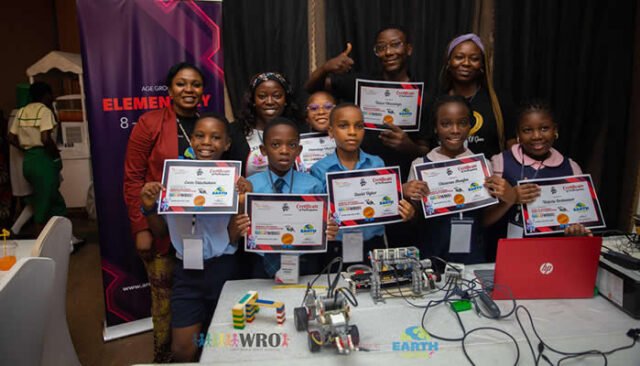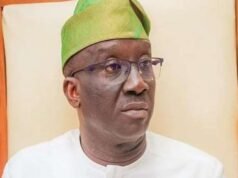In an inspiring triumph for both students and teachers, Ozolua Grammar School, Ologbo, Edo State, has emerged winner of the 16-week STEM robotics challenge. Their victory came after months of hard work, discipline, and creativity, as they competed against eight schools drawn from Edo, Delta, Bayelsa, and Rivers States.
The competition’s finale took place in Effurun, Delta State, bringing together bright young minds who showcased projects that went beyond simple classroom exercises. Each innovation represented teamwork, problem-solving, and a clear hunger to be part of Nigeria’s growing technology ecosystem.
The event’s theme, “Robotics for a Sustainable and Inclusive Skilled Economy,” reflected the larger goal of using STEM (Science, Technology, Engineering, and Mathematics) education as a driver for national development.
For Ozolua Grammar School, the journey was not just about winning a prize—it was about proving that when young Nigerians are equipped with the right tools and mentorship, they can compete and excel on any stage.
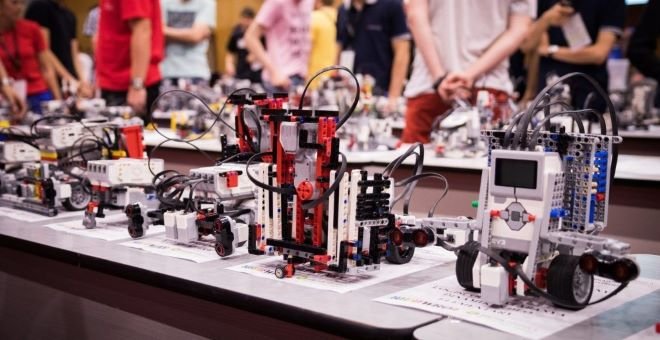
Table of Contents
The Partnerships That Made It Possible
Behind the success of the robotics challenge was a carefully built partnership between Contego Servo, Odyssey Educational Foundation, and Phoenix Girls Tech Foundation, with strong financial backing from the Nigerian Content Development and Monitoring Board (NCDMB).
Dr. Elizabeth Eterigho, CEO of Phoenix Girls Tech Foundation, explained the bigger picture in her address at the finale. According to her, the initiative was not only about teaching robotics but about nurturing critical thinkers, innovators, and problem-solvers who will shape the future of Nigeria’s workforce.
“Robotics isn’t just a learning tool, but a launchpad for innovation,” she said. For four months, students and teachers engaged in hands-on training, learning how to design, build, and program robots. Dr. Eterigho stressed that the projects displayed at the finale were more than mechanical tasks—they were proof that teamwork and resilience can transform abstract knowledge into practical solutions.
The support from NCDMB, she noted, was crucial. Without their investment, the scale of the programme—spanning four states and involving multiple schools—would not have been possible. It highlighted the importance of public-private collaboration in advancing STEM in Nigeria.
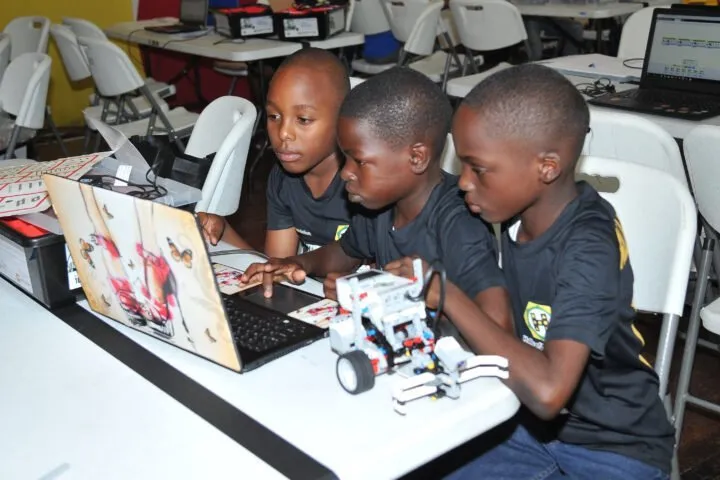
Endorsements from Government and Education Leaders
The competition also drew recognition from government officials who see STEM as vital for the country’s future. Representing the NCDMB, Weyinmi Ebiyon described the challenge as part of a broader mission to uplift educational standards and inspire students to embrace skills relevant for the 21st century.
He encouraged the students to put their newly acquired knowledge to good use, not just in academics but in developing practical solutions to community and national challenges.
Mrs Rose Ezewu, Delta State’s Commissioner for Basic and Secondary Education, echoed his sentiments. She praised the organisers and sponsors for investing in young people, while pledging the Delta State Government’s commitment to sustaining and expanding STEM robotics education across schools.
Her comments highlighted an important point: while competitions like this shine a spotlight on talent, scaling such initiatives across Nigeria’s educational system is what will truly prepare the next generation for opportunities in technology and innovation.
Winners, Participants, and the Road Ahead
At the end of the finale, Ozolua Grammar School, Ologbo, proudly took the first position. They were followed closely by Iwere Secondary School, Koko (Warri North LGA, Delta State) in second place, and Nana Model College, Warri (Warri South LGA, Delta State) in third.
Other schools that showcased projects included:
- Community Secondary School, Kalio-Ama Okrika (Rivers State)
- Community Secondary School, Rumuoro Ogbakiri Emuoha (Rivers State)
- Ajoki Secondary School, Ajoki (Edo State)
- Okotie Eboh Grammar School, Sapele (Delta State)
- CSS Okutukutu/Etegwe (Bayelsa State)
- Epie National High School, Kpansia (Bayelsa State)
Their presence showed that the challenge was not about winners and losers, but about raising a generation of learners who are ready to adapt to a rapidly changing world.
After their win, Mr Okoh Isaac, a teacher at Ozolua Grammar School, expressed gratitude to God, the organisers, and the NCDMB for making the competition possible. He used the platform to call on governments at all levels to invest more in technology education, pointing out that access to resources and training could transform many Nigerian students into global innovators.
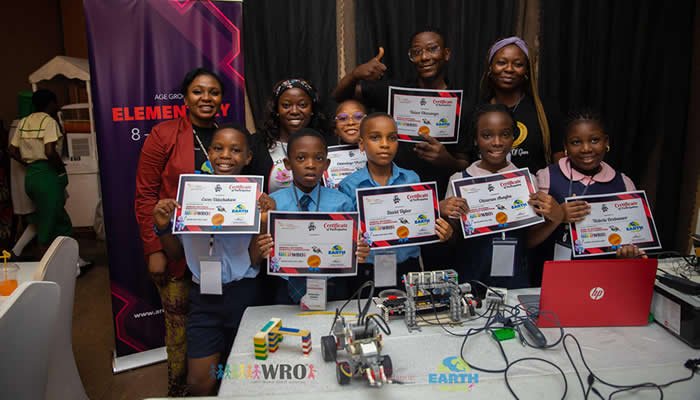
Conclusion
The 16-week STEM robotics challenge may have ended with a trophy presentation, but its real impact goes much deeper. For the students, it was a chance to see how science and technology can be applied to real-world problems. For teachers, it was a reminder of the power of mentorship and persistence. And for the wider community, it was evidence that Nigeria’s youth have the creativity and determination to lead in innovation, if given the chance.
Competitions like this are not just about winning—they are about inspiring. Ozolua Grammar School’s victory is proof that small communities can produce world-class talent. It is also a call to action: more schools, more states, and more sponsors need to come on board so that STEM education is not limited to a few, but becomes the standard across Nigeria.
As Nigeria continues to face challenges of unemployment, economic diversification, and global competitiveness, STEM remains a clear pathway to empowerment. With sustained investment, mentorship, and collaboration, young Nigerians can not only build robots but also build a future where technology drives growth and inclusion.
For now, the spotlight is on Edo State, where Ozolua Grammar School’s triumph stands as a shining example of what is possible when education meets opportunity.
Join Our Social Media Channels:
WhatsApp: NaijaEyes
Facebook: NaijaEyes
Twitter: NaijaEyes
Instagram: NaijaEyes
TikTok: NaijaEyes


